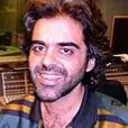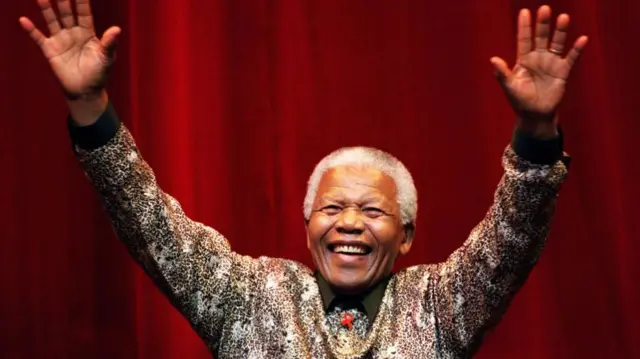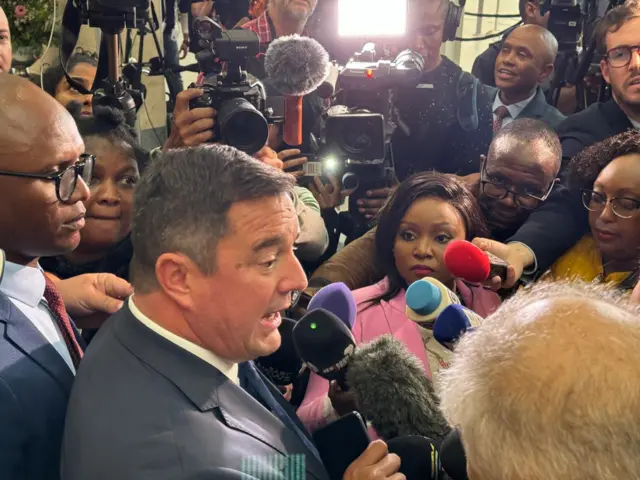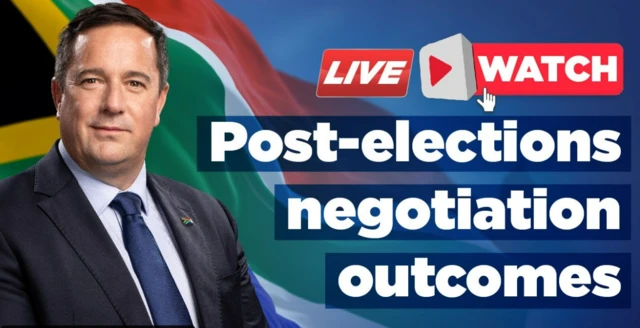South Africa’s youngest MP is aged 20published at 13:54 BST 14 June 2024
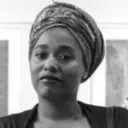 Rafieka Williams
Rafieka Williams
BBC News, Johannesburg
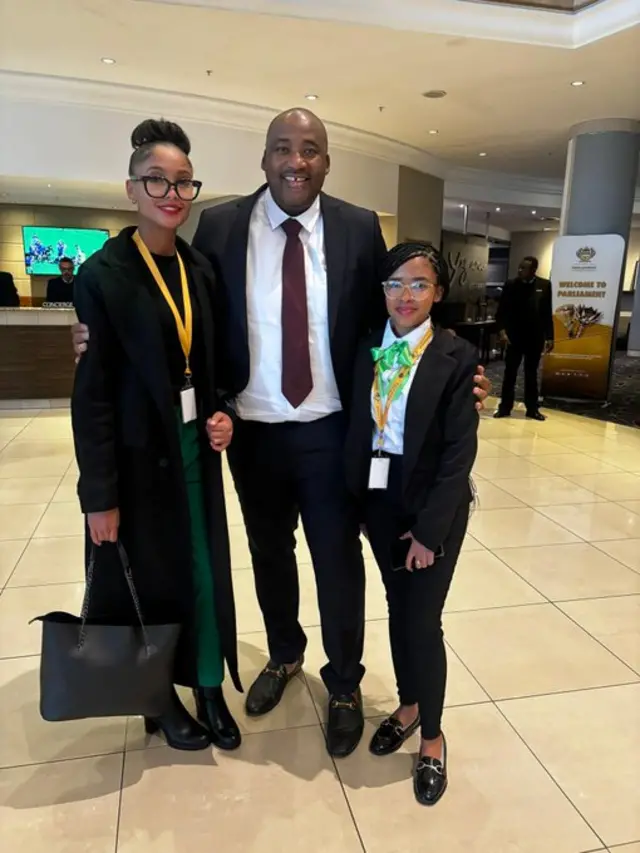 Image source, Gayton McKenzie
Image source, Gayton McKenzieCleo Wilskut (L), along with PA party leader Gayton McKenzie (C) and Jasmine Petersen (R), will be one of the PA's nine MPs
As the voting for speaker is still going on, one of those who'll be taking part is Cleo Wilskut, who at the age of 20 is this parliament's youngest MP.
Earlier Wilskut, a Patriotic Alliance (PA) MP, walked alongside her party leader Gayton McKenzie, as she took the oath with eight other legislators. Jasmine Petersen - another of the party's MPs - is 22.
Once the election of speaker and deputy speaker is completed they will participate in the election of the country's next president.
That's set to be Cyril Ramaphosa after a deal for a Government of National Unity was agreed, which the PA is also backing.
